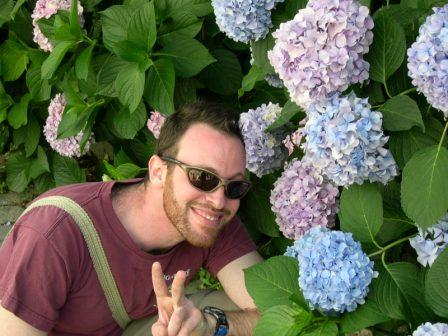High hopes
NY Times
Essay, November 28, 2006
Success Is Relative, and Height Isn’t Everything
By STEPHEN S. HALL
Tallness has always been viewed as a desirable physical trait — so desirable that more than a century ago, Sir Francis Galton began collecting measurements of British schoolchildren as a prelude to his dream of breeding genetically superior human beings. Although his eugenics project went nowhere, his obsession with height survives in a word that has become part of every modern parent’s vocabulary: percentile. Galton both coined the term and developed the statistics that allowed percentiles to be plotted on a growth chart.
Since physical size is such an intrinsic feature of basic (not to mention personal) biology, researchers have returned again and again to that fateful intersection of genes, environment and stature. When they throw human qualities like cognition or intelligence into the mix, the combination becomes both fascinating and dangerous, not least because of the half-baked lessons that sometimes make their way from the technical literature to dinner party conversations.
A group of researchers at the University of California, San Diego recently reported, for example, that mutations in a class of genes dubbed Tweedle — as in Tweedledee and Tweedledum — can alter the overall shape of fruit flies; a mutated “TweedleD,” the scientists noted, produced “short and stout” flies. The good news is that this particular class of genes is found only in insects; the bad news is that it reinforces the Galtonian notion of size as a genetically determined trait that can possibly be manipulated.
Such manipulation would look more socially attractive if the mere fact of being taller made a person smarter, as some research has suggested since the 1890s. The most recent researchers to venture fearlessly into the height wars are two well-respected economists at Princeton University. Last August, the economists, Anne Case and Christina Paxson, published a paper called “Stature and Status: Height, Ability and Labor Market Outcomes” that is still reverberating.
Economists have long been fascinated by data showing that tall adults tend to earn more money. Using data sets from four long-running studies conducted in the United States and Britain, Dr. Case and Dr. Paxson present evidence arguing that on average taller people earn more because they are, quite simply, smarter. They suggest that the difference in cognitive ability becomes apparent as early as age 3. “Throughout childhood,” they write, “taller children perform significantly better on cognitive tests.”
If this were as true as it sounds, the news would obviously provoke great consternation in any parent with a child smaller than average — a status that most of us, thanks to Galton and his percentiles, know by heart. But it turns out that the Princeton story is a bit more nuanced than that, and part of a very long debate.
As Dr. Case and Dr. Paxson make clear in their paper, many studies have shown that height is not just a matter of genes, but has a lot to do with prenatal development, early postnatal nutrition, and even a family’s socioeconomic status. Indeed, the scientists who study human growth have known for almost two centuries that children who have ample early nutrition grow faster and taller than those raised in more deprived circumstances, and well-nourished children also have earlier growth spurts. Good “nurture” of this sort, including minimal exposure to disease, produces children more likely to reach their genetic potential in terms of height. And as the Princeton economists stress, “environmental factors that are thought to influence cognitive development” affect height.
When you add it all up, it says something a little more complicated than “taller people earn more because they’re smarter.” Someone who is 6 feet tall, but might have been 6-foot-2 with better early nutrition, may not have developed as much cognitive ability as someone who was well-formed and well-fed all along but stands 5-foot-6.
The more accurate, but much less catchy, formulation would be: all other things being equal, people who reach their growth potential in height, whether taller or smaller than average, are likelier to be smarter than those who don’t, probably because they benefited from optimal early development. “Part of what we are trying to do,” Dr. Paxson said, “is to focus on height as a way of getting people to focus on growth.”
Dr. Case and Dr. Paxson offered their results as an alternative theory to a much-cited paper published two years ago by Nicola Persico and Andrew Postlewaite of the University of Pennsylvania and Dan Silverman of the University of Michigan. These researchers concluded that the “height premium” in an adult male’s income correlated most strongly with a boy’s height at age 16. They speculated that taller teenagers accrued “human capital” through athletic and social activities. Dr. Postlewaite said in an interview that he did not know how to reconcile the importance of adolescence in his earlier study to the more recent Princeton findings, where adolescence ceased to be a factor when childhood cognition was weighed.
Perhaps the two studies do not require reconciliation, but rather illustrate how imperfect our grasp remains of a fundamental issue — growth and ability — that researchers have been struggling to understand for more than a century. Our measures of cognition remain tentative, and quantification of emotional or social intelligence does not enter into the formulations at all. While understandable, the economist’s focus on income as the key determinant of success reflects a narrow bandwidth of human value; in economic studies of this sort, penniless artists like Vincent Van Gogh or impoverished leaders like Mahatma Gandhi would be examples of bad labor market outcomes.
The most misleading term in the entire discussion may be “on average”— a fact that Dr. James M. Tanner, the British growth researcher, pointed out 40 years ago. “Perhaps the best analogy is with accident statistics,” he said while delivering, of all things, the Galton Lecture to the Eugenics Society in London in 1966. “No one can tell if he will be killed in a motor accident next week, yet the total number of people who will be killed in this period can be predicted rather accurately. Equally the correlation we are discussing, like road deaths, tells us something of sociological but nothing of individual importance.”
Dr. Tanner suggested then, as Dr. Case and Dr. Paxson did several months ago, that it might be useful to study how development in the womb and early childhood affects intelligence. It was a good idea 40 years ago, it’s a better idea today, and it would help shift the public conversation from relative height, which is burdened with social distraction, to optimal growth, which is about giving all children, small and tall, the best chance to reach their physical and intellectual potential.
Stephen S. Hall is the author of “Size Matters: How Height Affects the Health, Happiness and Success of Boys — and the Men They Become” (Houghton Mifflin).












